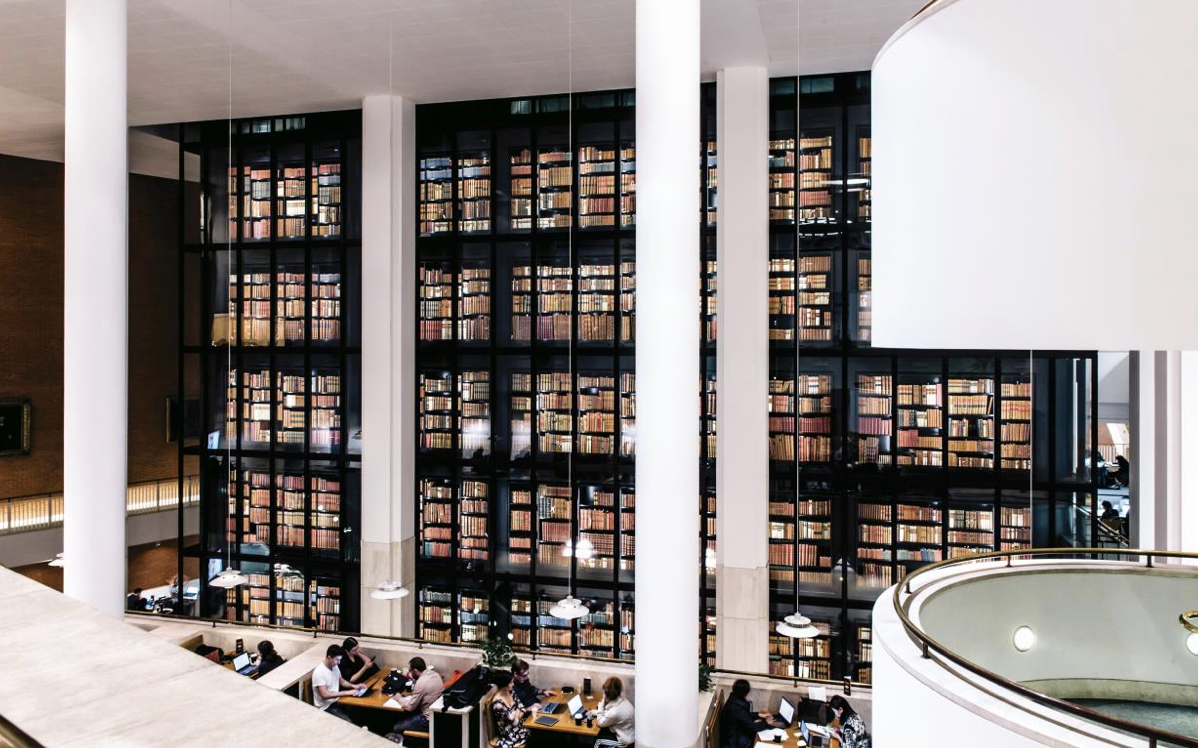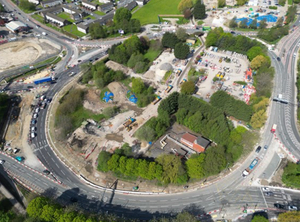This week marks 50 years since the British Library began operations in July 1973. Born out of a vision to create a new kind of national institution, which would encourage scientific and technological research, business, the arts and humanities, the Library came into existence in 1973 as a result of the British Library Act (1972), passed by Parliament the previous year.
Several existing organisations, including the British Museum Library, the National Central Library and the National Lending Library for Science and Technology, were brought together to create the British Library. Since 1973, the Library has built a vast and growing collection and has become one of the great libraries of the world, making the nation’s cultural and intellectual heritage available to everyone, for research, inspiration and enjoyment.
Among the estimated 170 million items the Library cares for are books, journals, newspapers, patents, maps, prints, manuscripts, stamps, photographs, 6.5 million sound recordings, 11.3 million digital publications of all kinds and over 20 billion pages of UK web content. The collection grows every day, supported by the Legal Deposit mandate to collect everything published in the UK, whether physical or digital, and the Library’s mission is to develop, preserve and provide access to the vast resource, for today’s users and far into the future.
In a special message to the Library to mark the anniversary, His Majesty King Charles III said: “Since its establishment, the British Library has become one of the great libraries of the world, treasured by all who use it. The British Library continues to reach millions of people through its display of extensive collections, Reading Rooms and network of partner libraries. I am pleased to see that The King’s Library remains to this day a working part of the national collection.”
Culture Secretary Lucy Frazer said: "The British Library was one of the outstanding cultural creations of the second Elizabethan age.
"In the fifty years that followed, the Library became home to the UK's written history with an extensive collection and a heritage that has entertained and informed millions of visitors.
"As accurate and reliable information becomes ever more valuable, libraries like the British Library continue to increase in importance as one of the most trusted sources of knowledge and facts. The Library has everything to look forward to in the next 50 years."
Dame Carol Black DBE, Chair of the British Library Board, said: “Fifty years ago, the British Library was brought into being by a vision that united great heritage collections and modern day scientific research publications. Over the past five decades, as the collection has continued to grow and develop, so has the role that we serve – both as a world-class research library, and as a cultural institution that aims to be for everyone. Thanks to all of our loyal users, staff and supporters for making us everything that we are, as we look forward to our next fifty years.”
Highlights since the British Library began operations in 1973 include:
- In 1982 the India Office Library and Records were transferred from the Foreign and Commonwealth Office to the British Library – these contained the entire archives of British India, from the foundation of the East India Company in 1600 to independence;
- The following year (1983) the Library took over the British Institute of Recorded Sound – now the British Library Sound Archive, this is one of the largest sound archives in the world;
- The British Library at St Pancras opened its doors to Readers in 1997 and was officially opened by Her Majesty Queen Elizabeth II in June 1998 - originally designed by architect Sir Colin St John Wilson and his partner MJ Long between 1982 and 1999, it was the largest UK public building to be built in the 20th century, and in 2015 the St Pancras building was awarded Grade I listed status;
- Helping to digitise over eleven million images and 35,000 sound tracks in more than 90 countries since 2004 through the Endangered Archives Programme, which facilitates the digitisation of archives that are in danger of destruction, neglect or physical deterioration;
- Opening the first Business & IP Centre (BIPC) in St Pancras, London in 2006 and establishing the nationwide BIPC Network in 2012, with support from the Intellectual Property Office, then expanding to over 100 locations, reaching people who are under-represented in business in more urban, rural and coastal locations than ever before, following a £13 million investment from the Department for Culture, Media and Sport in 2020;
- Purchasing the St Cuthbert Gospel, a miraculously well-preserved 7th century manuscript that is the oldest European book to survive fully intact and therefore one of the world’s most important books, for £9m in 2012 following the Library’s largest and most successful fundraising campaign;
- Expanding the remit of legal deposit, which has been a part of English law since 1662, in 2013 to collect, preserve and provide long term access to the increasing proportion of the nation’s cultural and intellectual output that appears in digital form, such as blogs, e-books and the entire UK web domain;
- The purpose-built low-oxygen and high-density National Newspaper Building opening in Boston Spa, Yorkshire in 2015, with around 33 kilometres of newspapers, following a £33 million programme to move, preserve and provide access to the national newspaper collection;
- Bringing the four original surviving Magna Carta manuscripts, cared for by the British Library, Lincoln Cathedral and Salisbury Cathedral, together for the first time to mark the 800th anniversary of the issue of the Charter by King John in 1215;
- Digitising and preserving more than 360,000 individual recordings since 2015 through the Save Our Sound’s Unlocking Our Sound Heritage project, with the support of the National Lottery Heritage Fund and others;
- Creating the Living Knowledge Network, a UK-wide partnership of national and public libraries, with the National Library of Scotland and National Library of Wales in 2016, which now comprises over 30 public library services.
There will be a series of Pay-What-You-Can events to celebrate the 50th anniversary. The programme will comprise online and in-person events in London and Yorkshire throughout July, including:
- Honouring some of the most loved figures in British literature, including Emily Brontë on 20 July and William Shakespeare on 18 July
- Lively debate on the best writing of the last fifty years with Monica Ali, Roger McGough and David Nicholls as part of Lit, Laugh, Love at the Library (11 July)
- An Evening of Discovery and Illumination (13 July), which will showcase a selection of writers’ archives, manuscripts and rare books the Library has acquired over the last five years
- Surrender (4 - 11 July), an immersive audio journey featuring rarely-heard readings and reflections from storyteller, art critic and artist John Berger
- Meet the British Library (8 July) with a range of free tours, talks, performances and workshops
The Library recently published a new strategic vision, Knowledge Matters, which outlines the ways in which, as the UK’s national library, it will serve new and existing audiences over the next seven years, while adapting to the monumental changes that are already impacting both the knowledge industry and the wider world.
Knowledge Matters underpins the renewal of the Library’s Boston Spa site in Yorkshire, to provide urgently needed extra space for a collection that grows by 8 kilometres of shelving each year, working towards a permanent new site in the city centre of Leeds, and expanding our the iconic London campus at St Pancras to create a brand new space for London that everyone can enjoy.
You will find both TopicUK and Yorkshire Businesswoman magazines in The British Library.






